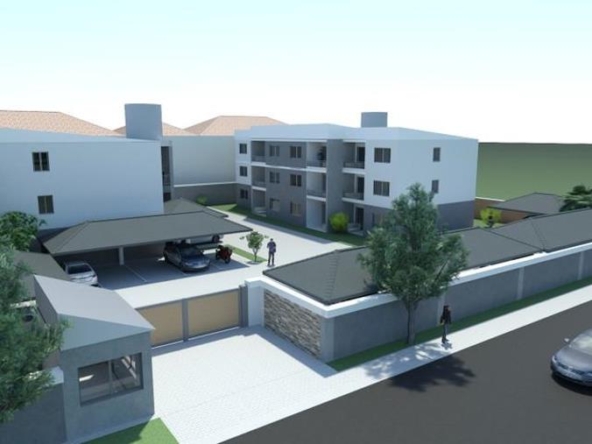
Gauteng Province
Gauteng is located in the northeastern part of South Africa, bordering the provinces of Mpumalanga to the east, Limpopo to the north, and North West to the west. It is the smallest province in South Africa in terms of land area but the most populous, with a population of over 15 million people.
The provincial capital of Gauteng is Johannesburg, which is also the largest city in the province and the economic hub of South Africa. Other major cities in Gauteng include Pretoria, the administrative capital of South Africa, and Ekurhuleni, a metropolitan municipality that includes the East Rand area.
Gauteng is the most populous province in South Africa, with a population of over 15 million people. It has a diverse demographic composition, with a significant proportion of the population being black Africans (76%), followed by whites (12%), coloreds (5%), and Indians/Asians (4%). The official languages of Gauteng are English, isiZulu, isiXhosa, Afrikaans, Sepedi, Setswana, Sesotho, and Xitsonga.
Gauteng is the economic heartland of South Africa, accounting for over 35% of the country’s GDP. The province has a diverse economy that includes finance, manufacturing, mining, information technology, and services. Johannesburg is home to the Johannesburg Stock Exchange, the largest stock exchange in Africa. The province is also a major transport hub, with two major airports (OR Tambo International Airport and Lanseria International Airport) and a well-developed road and rail network.
Gauteng has a subtropical highland climate, with hot summers and cool, dry winters. Temperatures can range from 25°C in summer to 5°C in winter, with occasional snowfalls on the highveld. The province receives most of its rainfall in the summer months, with occasional thunderstorms and hailstorms.
Gauteng is located on the Highveld plateau, which is characterized by rolling hills and grasslands. The province is home to several important rivers, including the Vaal River, which supplies water to Johannesburg and other cities. It is also known for its scenic beauty, with several nature reserves and parks such as the Cradle of Humankind, the Magaliesberg Biosphere Reserve, and the Suikerbosrand Nature Reserve.
Gauteng has a rich history that dates back to pre-colonial times, with evidence of early human habitation in the area. The province was originally inhabited by various indigenous groups, including the San, the Khoikhoi, and the Bantu-speaking peoples. In the 19th century, the area was settled by Boer farmers who established several small towns and villages. The discovery of gold in Johannesburg in 1886 led to a massive influx of people and the development of the city as a mining and financial center.
Gauteng is a melting pot of cultures and ethnicities, with a vibrant arts and culture scene that includes music, dance, theater, and visual arts. The province is home to several museums and galleries, including the Apartheid Museum, the Johannesburg Art Gallery, and the Hector Pieterson Museum. Gauteng is also known for its food culture, with a variety of dishes and cuisines influenced by its diverse population.
Gauteng is governed by a provincial legislature and executive, with the Premier as the head of the provincial government. The province is divided into three metropolitan municipalities (Johannesburg, Tshwane, and Ek
Gauteng is home to several world-renowned universities and educational institutions, including the University of Witwatersrand, the University of Pretoria, and the University of Johannesburg. The province also has a well-developed primary and secondary education system, with several public and private schools offering high-quality education
Gauteng is known for its vibrant nightlife scene, offering a diverse range of options to suit different tastes and preferences. As the economic and cultural hub of South Africa, Gauteng’s nightlife is arguably the liveliest in the country.
Johannesburg, in particular, has a reputation for being a party city, with a range of nightclubs, bars, and live music venues catering to different crowds. The suburb of Sandton is a popular destination for those looking for a more upscale night out, with exclusive bars and clubs offering top-notch entertainment and luxury surroundings. The city also has a growing craft beer scene, with several microbreweries and bars specializing in craft beers and ciders.
Pretoria, on the other hand, has a more laid-back nightlife scene, with several bars, pubs, and clubs located in the city center and surrounding suburbs. Hatfield is a popular destination for students, offering a range of bars and clubs at affordable prices.
Gauteng is also home to several music festivals and events throughout the year, such as the Oppikoppi festival and the annual Johannesburg International Mozart Festival. Visitors can also experience traditional South African music and dance at various cultural centers and events.
Overall, the social nightlife in Gauteng is diverse and lively, offering a range of options for visitors and residents alike. Whether you’re looking for a sophisticated night out in Sandton or a more laid-back experience in Pretoria, Gauteng has something for everyone.
Healthcare
Gauteng has a well-developed healthcare system, with several public and private hospitals, clinics, and medical facilities. Some of the major hospitals in the province include Chris Hani Baragwanath Hospital, Charlotte Maxeke Johannesburg Academic Hospital, and Steve Biko Academic Hospital.
Infrastructure
Gauteng has a well-developed infrastructure, with modern highways, airports, and public transportation systems. The Gautrain, a high-speed train service, connects Johannesburg, Pretoria, and OR Tambo International Airport, making it easy for commuters and travelers to get around the province. The province also has several industrial and commercial zones, with modern office parks and industrial complexes.
Sports
Gauteng is a major sports hub, with several world-class sports facilities and venues. Some of the major sports events that take place in Gauteng include the Comrades Marathon, the Soweto Marathon, and the Two Oceans Marathon. The province is also home to several major sports teams, including the Kaizer Chiefs and Orlando Pirates football clubs.
Challenges
Gauteng faces several challenges, including high levels of crime, poverty, and inequality. The province has a large informal sector, with many people working in precarious and low-paying jobs. The rapid urbanization and population growth in Gauteng have put a strain on the province’s infrastructure and public services, leading to issues such as traffic congestion, air pollution, and inadequate public transportation. The province is also vulnerable to natural disasters such as floods and droughts, which can have a significant impact on the economy and the population.
Tourism
Gauteng province in South Africa is a hub of culture, entertainment, and economic activity. Visitors can explore vibrant cities like Johannesburg and Pretoria, visit iconic landmarks such as the Apartheid Museum, and enjoy nature and wildlife at game reserves like Dinokeng and Rhino and Lion Nature Reserve
Get Property Alerts
Get notified of new properties in neighborhoods around Gauteng.
By continuing I understand and agree with Datesh Properties Privacy Policy.
















